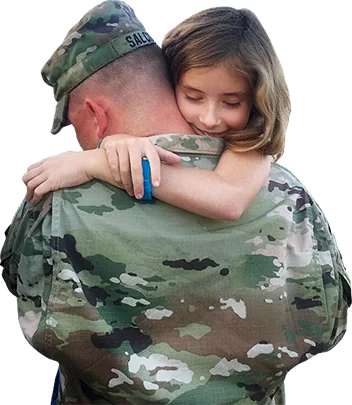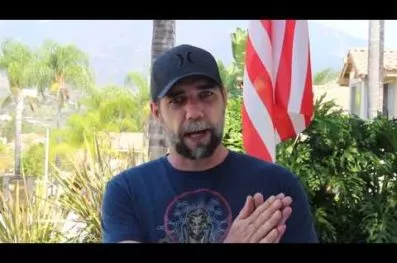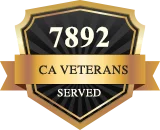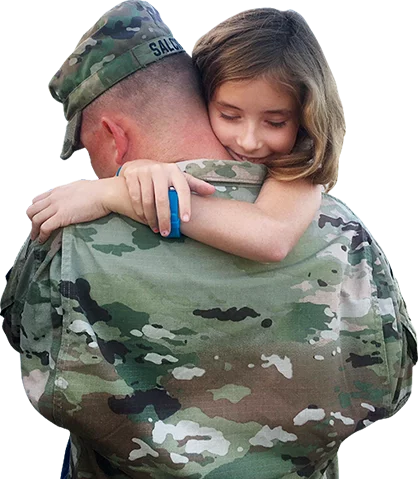VA Benefits for Surviving Spouse

Va Loans
REAL ESTATE FOR VETERANS
VA Benefits for Surviving Spouse
How to use VA Benefits for a Surviving Spouse

Peter Van Brady
Founder of SoCal VA Homes
Author: Avoiding Mistakes & Crushing Your Deals Using Your VA Loan
VA Home Loans
-
If the Veteran died in service or from a service-related disability.
-
If the Veteran was a prisoner of war (POW) or missing in action (MIA) for at least 90 days.
-
If the Veteran was rated “continuously and totally” disabled and was eligible to receive disability compensation at the time of death. Or if the Veteran was disabled for ten years prior to death, or five years from date of discharge.
-
If the surviving spouse has not remarried.
-
No VA funding fee.
-
As little as zero down on purchase loans up to $417,000 (more in some areas).
-
Up to 100% refinancing of assessed value.
-
No monthly mortgage insurance premiums.
-
Low-interest rates.
-
No penalty for early payoff or balance reduction.
-
VA Streamline refinancing, even if ineligible for full VA home loan benefits.
Dependency and Indemnity Compensation
For the surviving spouse to be eligible, the couple should have been married and cohabiting together for at least one year or had a child together. A surviving spouse may also be eligible for DIC if the Veteran died in a way that was not related to his or her service but had been receiving VA disability compensation for at least ten years preceding death. In addition, if the Veteran was receiving VA disability compensation for a minimum of five years after release from active duty, the surviving spouse may also be eligible for DIC. Finally, the surviving spouse must not currently be remarried; however, once reaching the age of fifty-seven, they can remarry and continue to receive DIC.
The children of the deceased Veteran are also eligible to receive DIC as a monthly, surviving child benefit. The children must be unmarried. Those who are under the age of eighteen, and those between the ages of eighteen and twenty-three and also attending school, are eligible for DIC. Children who were severely disabled under the age of eighteen, and who remain disabled as an adult, might also be entitled to survivor benefits under DIC.
Parents of the deceased Veteran may also be eligible for DIC if they were financially dependent on the service member. Biological, adoptive and foster parents are included in this category. The parents must also have an income below the minimum level established by law in order to receive monthly DIC.
Survivors Pension

Dependents’ Educational Assistance Program (DEA)
The Dependents’ Educational Assistance (DEA) Program and the Marine Gunnery Sergeant John David Fry Scholarship are the two main GI Bill programs that offer educational assistance to survivors and dependents of Veterans.
DEA programs are available to surviving dependents of Veterans who died while on active duty or due to a service-related injury or illness. Surviving dependents of Veterans who are permanently disabled as a result of service-related injury or illness are also eligible. DEA programs provide education assistance and training opportunities paid directly to the student in the form of a monthly monetary benefit. The Fry Scholarship provides post 9-11 benefits to the children and surviving spouses of service members who died during active duty after September 10, 2001. The Fry Scholarship provides tuition and fee payments paid directly to the school that the dependent or surviving spouse is attending. Dependents may be eligible for more than one of these programs, but in most cases, they will need to choose between the DEA program or the Fry Scholarship during the application process. The chart below compares the DEA program and the Fry Scholarship.
Benefit
DEA
Fry Scholarship
Payment:
- $1021 paid monthly directly to the student
- Full in-state tuition at a public institution. Up to $21,085 at a private institution.
- Books and supplies stipend up to $1000 paid directly to the student for each term.
- Monthly housing allowance paid directly to the student.
- For surviving spouses, a benefit can be used up to 20 years following the death of service member.
- For surviving dependents, up to 15 years following the death of service member.
- 45 months
- 36 months
- Yes
- Yes
- College, Business, Technical, or Vocational Programs
- Certification Tests
- Apprenticeship/On-the-Job Training
- Tutorial Assistance
- Work-study
- College, Business, Technical, or Vocational Programs
- Certification Tests
- Apprenticeship/On-the-Job Training
- Vocational flight training
- Tutorial Assistance
- Work-study
CHAMP VA
The Civilian Health and Medical Program is a health care program administered by the Department of Veteran Affairs. With this program, the VA shares in the costs of health care services and supplies to eligible enrollees. CHAMPVA should not be confused with TriCare (formerly known as CHAMPUS) which is a managed health care program administered through the Department of Defense for active duty and retired service members and their spouses, families and survivors. To be eligible for CHAMPVA, you cannot be eligible for TriCare. CHAMPVA enrolls the spouse, surviving spouse who has not remarried, and children of a Veteran who is permanently and totally disabled or who has died from a service related disability.
In general, CHAMPVA benefits include most health care services that are medically and psychologically necessary. Prescription benefits are cost-free via Meds by Mail or with a 25% cost-share via OptumRx, a retail pharmacy network available nationwide.
Burial Benefits
For assistance in using the VA home loan benefit as a surviving spouse, let SoCal VA Homes help. Call us at 949-268-7742.
As Seen on ABC 10 5:00 O’Clock News













